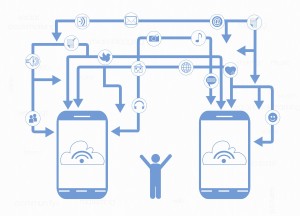3 Online Trends Parents Need to Warn Their Kids About – Part 2
In Part 1 (August 3, 2015) of this article, I listed dangerous online trends parents and children need to be aware of. These trends include:
- Challenges such as the Fire challenge, Planking, and Surfing.
- Chat sites such as Ask.fm, Chatroulette, Kik, SnapChat, and Yik Yak
- True Confessions sites such as PostSecret, and Whisper.sh
Unfortunately, online fads and trends change with dizzying speed. As I mentioned previously, this is not a comprehensive list. No such list exists. As parents become aware of the existence of some trends, teens will gravitate to new and even more dangerous ones. The problem is an ever-evolving, moving target that requires diligence and vigilance on the part of parents and other adults who have the opportunity to influence kids today.
1. Pray
It may not sound very practical, but the first thing we need to do is pray. Only when we realize this originates as a spiritual battle can we hope to protect our children and families.
2. Educate
Educate yourself. Learn what’s out there. Know what is entering your home through your kids’ cell phones, tablets, and computers.
3. Talk
Don’t assume your children know the dangers, no matter how obvious they may seem to you. Talk to your kids…and keep educating them. But don’t just talk…
4. Listen
If you don’t listen to your children, someone else will. So don’t just talk to your kids, listen to them, too. What are they curious about? What concerns them? If they won’t talk to you, find a trusted adult they will open up to. Drama aside, it really could be a matter of life and death. Besides, they will probably learn about these and other questionable sites faster than you will!
5. Interact
Spend time with your kids. You’ll learn more about your child while sharing some fun than in trying to force a conversation they might not be ready to have. But choose something they want to do, even if it’s outside your comfort zone.
6. Don’t assume
You may think your child is safe because you’ve had these conversations and regularly check their devices.
However, the 2014 McAfee study noted that 80% of tweens and teens “have had a conversation with their parents on how to stay safe online” and 77% admitted that what they post online can’t be deleted. Yet most kids still share too much personal information. Fifty percent posted their email address, 30% posted their phone number, and 14% posted their home address. These numbers add up to trouble.
Some apps even disguise themselves. KYMS is an app that hides behind a calculator icon. The app touts the benefit of keeping photos and videos secret from prying eyes. But kids may use it to circumvent parental controls.
Last, but not least:
7. Establish similar safeguards for your own Internet use
Safeguards are not just for children. As adults, we also need accountability. We need boundaries and safeguards in place to prevent similar consequences in our own life. Too many adults – Christians – struggle with pornography and other illicit activities when using the Internet.
Stay informed and stay involved. The information superhighway is a valuable tool. Still, when it resembles the Wild West, kids need to be protected…especially from themselves…and so do we.
(This article was originally written for Crosswalk.com)


Comments
3 Online Trends Parents Need to Warn Their Kids About – Part 2 — No Comments
HTML tags allowed in your comment: <a href="" title=""> <abbr title=""> <acronym title=""> <b> <blockquote cite=""> <cite> <code> <del datetime=""> <em> <i> <q cite=""> <s> <strike> <strong>